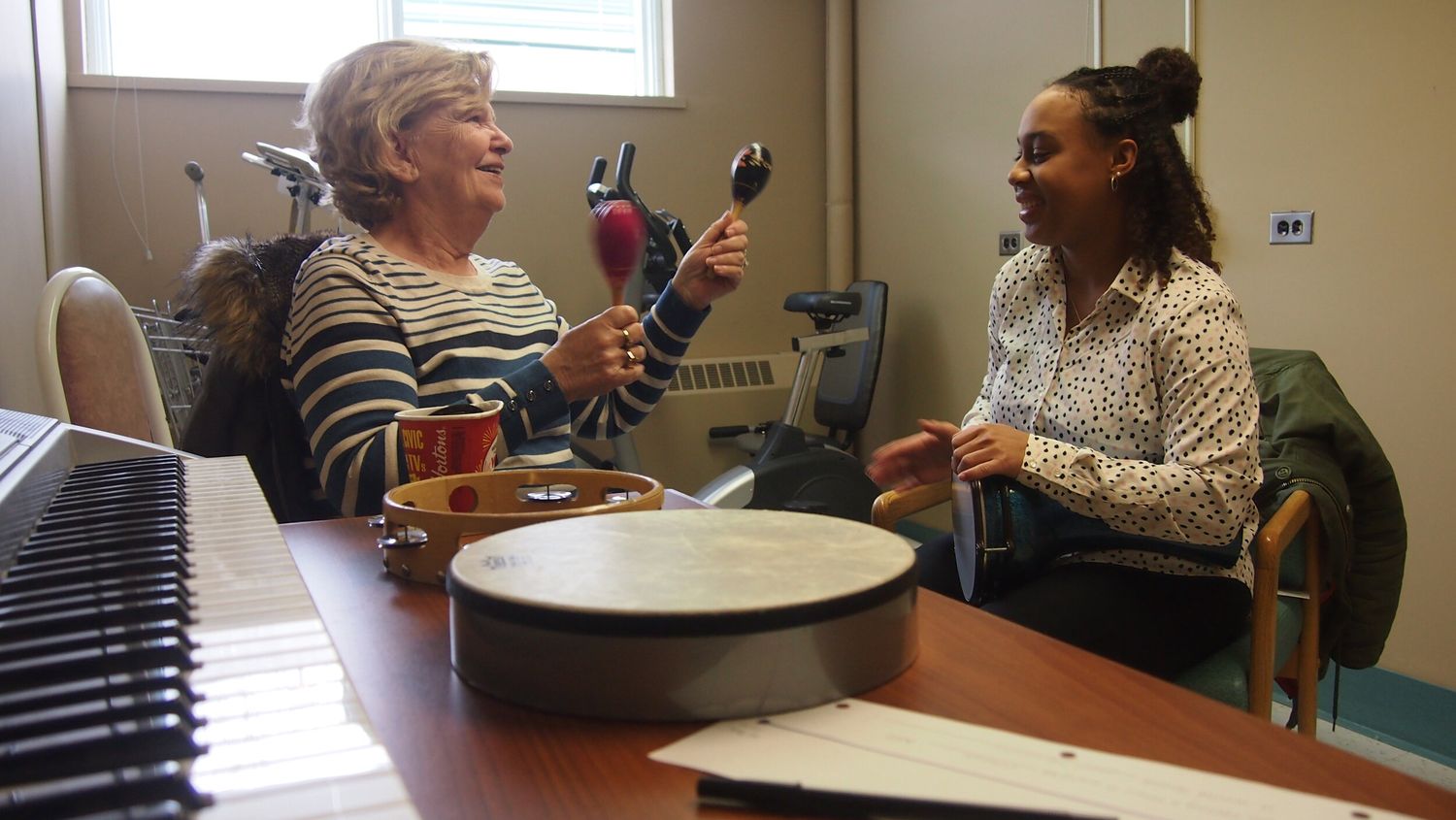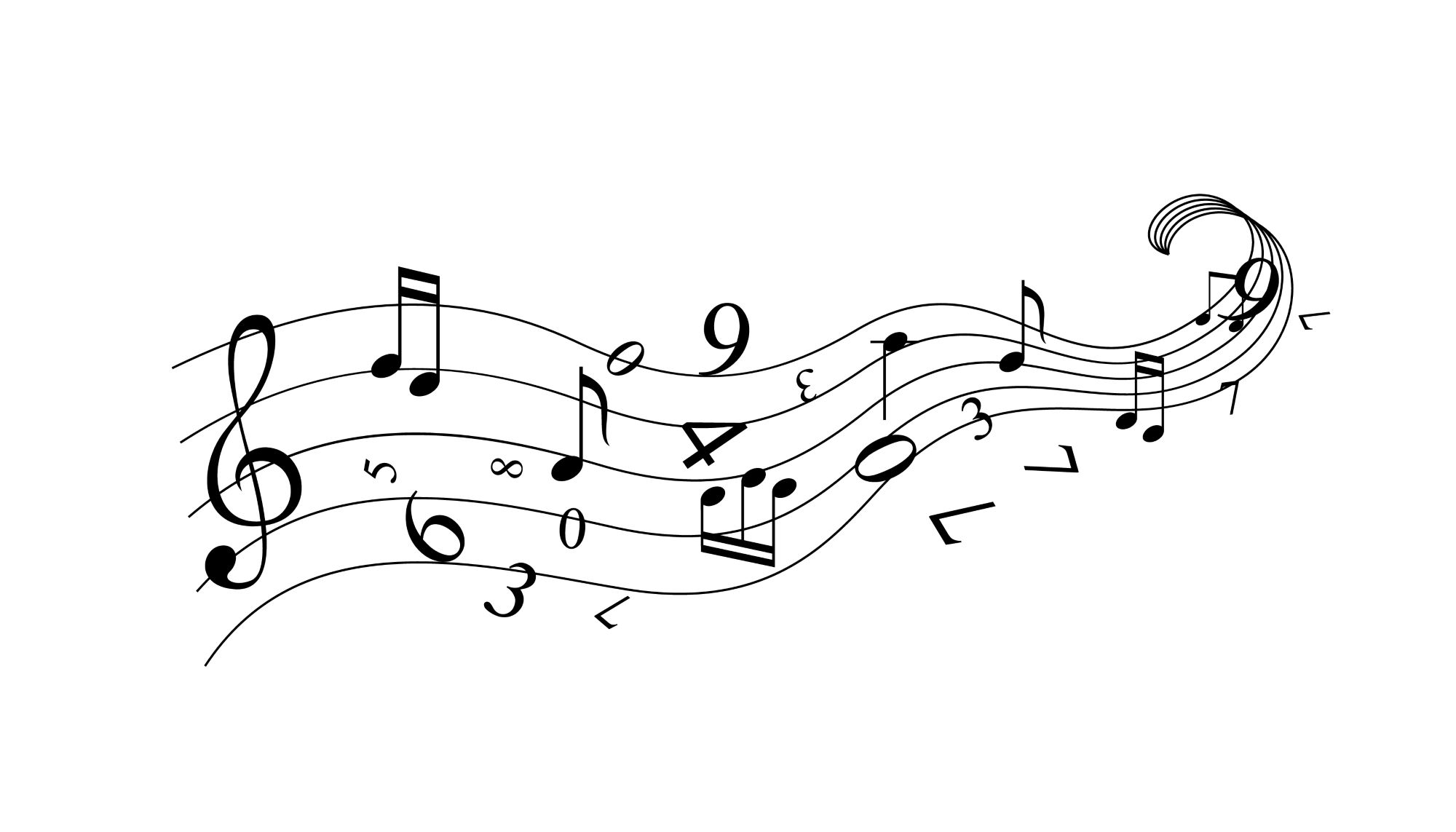Home>Events & Info>Music Therapy>How Does Music Therapy Help Depression


Music Therapy
How Does Music Therapy Help Depression
Published: February 1, 2024
Discover the transformative power of music therapy in treating depression. Explore how music therapy works and its positive impact on mental health.
(Many of the links in this article redirect to a specific reviewed product. Your purchase of these products through affiliate links helps to generate commission for AudioLover.com, at no extra cost. Learn more)
Table of Contents
- Introduction
- Understanding Depression
- What is Music Therapy?
- The Effects of Music Therapy on Depression
- How Does Music Therapy Work?
- Benefits of Music Therapy for Depression
- Different Approaches in Music Therapy
- Case Studies: Music Therapy’s Impact on Depression
- Incorporating Music Therapy Into Treatment Plans
- Potential Limitations of Music Therapy
- Conclusion
- References
Introduction
Music has long been celebrated for its ability to evoke emotions, uplift spirits, and transport us to another world. But did you know that music has therapeutic properties as well? In recent years, music therapy has gained recognition as an effective treatment for various mental health conditions, including depression.
Depression is a common mental health disorder that affects millions of individuals worldwide. It can manifest as a persistent feeling of sadness, lack of interest in activities, difficulty concentrating, changes in appetite or sleep patterns, and even thoughts of self-harm. While traditional treatments like medication and counseling are effective for many people, music therapy offers a unique and complementary approach to alleviate the symptoms of depression.
Music therapy is a holistic modality that utilizes the power of music to address emotional, physical, and social needs. It is administered by trained music therapists who are skilled in using music interventions to help individuals overcome challenges and improve overall well-being. By incorporating music into therapy sessions, music therapists create a safe and supportive environment where clients can explore their emotions, express themselves, and find healing.
In this article, we will delve into the fascinating world of music therapy and its applications in treating depression. We will explore the effects of music therapy on depression, the various approaches used, and the benefits it offers individuals struggling with this mental health condition. Additionally, we will discuss real-life case studies that highlight the positive impact of music therapy on depression and how it can be integrated into comprehensive treatment plans.
It is important to note that music therapy is not meant to replace conventional forms of treatment for depression, but rather to enhance and supplement them. It can be used in conjunction with medication, psychotherapy, and other therapeutic modalities to support the journey towards recovery. So, whether you are someone living with depression or a healthcare professional seeking innovative approaches, join us as we explore the captivating world of music therapy and its potential to alleviate the burden of depression.
Understanding Depression
Depression is a complex and debilitating mental health disorder that impacts the lives of millions of people around the world. It is characterized by a persistent feeling of sadness, hopelessness, and a loss of interest or pleasure in activities that were once enjoyable. Depression can interfere with daily functioning, relationships, and overall quality of life.
While everyone experiences periods of sadness or low mood, depression is more than just feeling “down.” It is a clinical condition that requires professional diagnosis and treatment. The exact cause of depression is not fully understood, but it is believed to result from a combination of biological, genetic, environmental, and psychological factors.
Some common risk factors for depression include a family history of depression, significant life changes or traumatic events, chronic medical conditions, substance abuse, and certain medications. Additionally, imbalances in brain chemicals, such as serotonin and dopamine, play a role in the development of depression.
The symptoms of depression can vary, but commonly include feelings of sadness, guilt, and worthlessness, a loss of energy or motivation, changes in appetite or weight, sleep disturbances, difficulty concentrating, and thoughts of death or suicide. It is essential to seek professional help if you or someone you know is experiencing these symptoms, as depression can worsen without proper intervention.
Depression is more than just a temporary mood, it is a treatable condition. Various treatment approaches exist, including medication, psychotherapy, lifestyle changes, and alternative therapies like music therapy. It’s important to find the right combination of treatments that work best for each individual, as everyone’s experience with depression is unique.
In the following sections, we will explore how music therapy can be utilized as a complementary treatment for depression. Music therapy harnesses the power of music to address the emotional and psychological aspects of depression, providing individuals with a unique avenue for expression, healing, and growth. Let’s discover how music therapy can make a difference in the lives of those struggling with depression.
What is Music Therapy?
Music therapy is a specialized field that utilizes the power of music to promote healing, enhance well-being, and improve quality of life. It is a evidence-based practice that involves the use of music interventions by trained and certified music therapists to address the physical, emotional, cognitive, and social needs of individuals.
Music therapy is rooted in the understanding that music has a profound impact on our brains and bodies. It can evoke emotions, stimulate memories, facilitate communication, and promote relaxation. By incorporating music into therapeutic sessions, music therapists create a safe and supportive environment where clients can engage with their inner selves, express their feelings, and work towards personal growth.
One of the distinguishing features of music therapy is its ability to address multiple dimensions of human experience simultaneously. It is a holistic approach that recognizes the interconnectedness of body, mind, and spirit. Music therapists are trained to tailor their interventions to meet the unique needs and goals of each individual, allowing for a personalized and client-centered approach to treatment.
Music therapy can take various forms, depending on the needs of the individual and the goals of the therapy. It may involve playing instruments, singing, songwriting, listening to music, guided imagery, movement to music, or improvisation. The choice of interventions is guided by the therapeutic goals and the preferences of the client.
It’s important to note that one does not need to have any musical background or ability to benefit from music therapy. The focus is not on musical skill or performance, but rather on the emotional and therapeutic impact of engaging with music in a therapeutic context. Music therapy is accessible to individuals of all ages, from infants to the elderly, and can be applied in various settings including hospitals, mental health facilities, schools, and community centers.
Music therapy is recognized as a legitimate profession by many healthcare organizations and is conducted by certified music therapists who have completed rigorous training and education. These professionals possess a deep understanding of both music and psychology, allowing them to utilize music as a powerful tool for healing and growth. They work in collaboration with other healthcare providers to ensure a comprehensive and integrated approach to treatment.
In the next sections, we will delve deeper into the effects of music therapy on depression and explore the different approaches that music therapists use to support individuals in their journey towards emotional well-being and recovery.
The Effects of Music Therapy on Depression
Music therapy has shown promising results in alleviating the symptoms of depression and improving overall well-being. The therapeutic use of music can positively impact emotional states, reduce anxiety and stress, enhance self-expression, and foster a sense of connection and support. Let’s explore the effects of music therapy on depression in more detail.
1. Emotional Regulation: Music has the power to evoke emotions and can serve as a cathartic outlet for individuals experiencing depression. Music therapy provides a safe space for individuals to explore and express their emotions through music, which can help release pent-up feelings and promote emotional regulation.
2. Mood Enhancement: Listening to certain types of music has been shown to have a direct influence on mood. Music with upbeat rhythms and positive lyrics can help uplift individuals’ spirits and create a more positive emotional state. This can be particularly beneficial for individuals experiencing depressive symptoms.
3. Stress Reduction: Stress is often a contributing factor to depression, and music therapy has been found to be effective in reducing stress levels. Music has a soothing effect on the nervous system and can help individuals relax and unwind. Deep breathing exercises to the rhythm of calming music can promote a sense of calm and reduce anxiety.
4. Social Interaction: Depression can often lead to social isolation and withdrawal. Engaging in music therapy provides opportunities for social interaction, whether through group sessions, music-making with others, or attending music therapy events and performances. This can foster a sense of belonging, connection, and support, which are crucial for mental well-being.
5. Cognitive Stimulation: Depression can affect cognitive function, including concentration and memory. Music therapy activities, such as learning to play an instrument or engaging in structured music listening exercises, can help stimulate cognitive abilities and improve cognitive functioning.
6. Self-Exploration and Self-Expression: Music therapy offers a unique avenue for self-exploration and self-expression. Through various music-making activities, individuals can tap into their creativity and express their thoughts, feelings, and experiences in a non-verbal and artistic way. This process can be empowering and provide individuals with a renewed sense of identity and purpose.
It is important to note that the effects of music therapy on depression can vary from person to person. Some individuals may experience immediate improvements in mood and symptoms, while others may require longer-term therapy to see significant changes. Additionally, music therapy should be used as part of a comprehensive treatment plan for depression, in conjunction with other therapies and interventions recommended by healthcare professionals.
Now that we understand the positive effects of music therapy on depression, let’s explore how music therapy works and the different approaches used in its practice.
How Does Music Therapy Work?
Music therapy works by utilizing the unique qualities of music to address the emotional, cognitive, physical, and social needs of individuals. It harnesses the power of rhythm, melody, and lyrics to create a therapeutic experience that promotes healing and transformation. Let’s explore the key principles and mechanisms behind how music therapy works.
1. Neurological Effects: Music has a profound impact on our brain and can elicit powerful neurological responses. When we listen to or engage in music, it activates various regions of the brain associated with emotions, memory, and reward. This neurochemical response releases endorphins, dopamine, and serotonin, which are neurotransmitters that play a role in regulating mood and overall well-being. By targeting these neurological pathways, music therapy can modulate emotions, reduce stress, and promote relaxation.
2. Emotional Release and Regulation: Music has the ability to evoke and amplify emotions. In music therapy, individuals are encouraged to explore and express their emotions through various musical activities, such as improvisation, songwriting, or guided listening. This process provides a safe outlet for emotional release, allowing individuals to confront and process difficult emotions associated with depression. Music therapists facilitate the exploration and regulation of emotions, helping clients develop coping strategies and cultivate emotional resilience.
3. Non-Verbal Expression: For individuals experiencing depression, verbal communication can be challenging. Music therapy offers an alternative means of communication through non-verbal expression. Music becomes a language through which individuals can convey their thoughts, feelings, and experiences without relying solely on words. This non-verbal communication can bypass barriers and facilitate self-expression, enabling individuals to explore and communicate their inner world.
4. Therapeutic Relationship: The therapeutic relationship formed between the music therapist and the client is an essential aspect of music therapy. Music therapists create a safe, empathetic, and non-judgmental space for clients to explore their emotions and experiences. The trusting bond that develops between the therapist and client facilitates a collaborative and supportive environment for personal growth and healing.
5. Personalized Interventions: Music therapy interventions are individualized to meet the unique needs of each client. Music therapists assess the client’s preferences, musical background, therapeutic goals, and treatment plan to tailor the interventions accordingly. This personalized approach ensures that the music used resonates with the individual, evokes specific emotional responses, and supports their healing journey.
6. Integration with Other Therapeutic Modalities: Music therapy is often used in conjunction with other therapeutic modalities, such as medication, psychotherapy, and mindfulness practices. It can enhance the effectiveness of these approaches by providing an additional avenue for healing and self-expression. Integrating music therapy into a comprehensive treatment plan allows for a holistic and multidimensional approach to addressing depression.
By combining these principles and mechanisms, music therapy provides a unique and impactful approach to treating depression. In the next section, we will explore the specific benefits that music therapy offers to individuals struggling with depression.
Benefits of Music Therapy for Depression
Music therapy offers a range of benefits for individuals struggling with depression. By leveraging the therapeutic properties of music, it can effectively alleviate symptoms, promote emotional well-being, and enhance overall quality of life. Let’s explore some of the key benefits of music therapy for depression.
1. Mood Enhancement: Music has a profound impact on our emotions, and music therapy can help improve mood in individuals with depression. By selecting appropriate music that resonates with the individual, music therapists can evoke positive emotions, uplift spirits, and bring about a sense of joy and happiness. This mood enhancement can have a significant impact on an individual’s overall well-being and quality of life.
2. Self-Expression and Emotional Release: Depression often involves a complex range of emotions that can be difficult to verbalize. Music therapy provides a non-verbal form of self-expression, allowing individuals to express their emotions, experiences, and inner thoughts through music. This form of self-expression can provide a sense of relief, validation, and empowerment, facilitating emotional release and supporting emotional healing.
3. Stress Reduction and Relaxation: Depression is often accompanied by high levels of stress and anxiety. Music therapy can help reduce stress by promoting relaxation and creating a sense of calm. Slow, rhythmic music or guided imagery can induce a state of relaxation, decrease physiological arousal, and ease tension in the body. This can be particularly beneficial for individuals struggling with sleep disturbances or heightened anxiety.
4. Improved Self-esteem and Self-confidence: Depression often takes a toll on an individual’s self-esteem and self-worth. Through music therapy, individuals have the opportunity to develop and showcase their musical abilities, whether it be playing an instrument, singing, or composing songs. As they experience progress and success in their musical endeavors, their self-esteem and self-confidence can improve, leading to a more positive self-perception.
5. Social Connection and Support: Depression can often lead to feelings of isolation and withdrawal from social interactions. Music therapy provides a group setting where individuals can connect with others through music-making, shared experiences, and mutual support. Group music therapy sessions foster a sense of belonging, promote social skills, and offer the opportunity to develop meaningful relationships with others who may be experiencing similar challenges.
6. Increased Emotional Awareness and Coping Skills: Engaging in music therapy can help individuals with depression develop a greater self-awareness of their emotions and learn healthy coping skills. Through musical exploration and expression, individuals can identify patterns in their emotions and behaviors, recognize triggers, and develop effective strategies for managing distressing emotions. This increased emotional awareness and coping skills can be carried over into daily life, providing individuals with valuable tools for their ongoing mental health.
It’s important to note that the benefits of music therapy for depression can vary depending on individual circumstances. The level of engagement, therapeutic alliance, and consistency of music therapy sessions can all influence the effectiveness of the treatment. However, the overall impact of music therapy on improving mood, fostering self-expression, reducing stress, and promoting social connection makes it a valuable and evidence-based approach in the treatment of depression.
In the next section, we will explore the different approaches and techniques used in music therapy to address depression and support individuals on their healing journey.
Different Approaches in Music Therapy
Music therapy encompasses a wide range of approaches and techniques that can be tailored to meet the unique needs and goals of individuals with depression. These approaches aim to harness the therapeutic qualities of music to address emotional, cognitive, physical, and social aspects of well-being. Let’s explore some of the different approaches commonly used in music therapy for depression.
1. Active Music Making: This approach involves actively engaging in music-making activities such as playing instruments, singing, or composing songs. Active music-making allows individuals to express their emotions, channel their energy, and develop a sense of mastery and accomplishment. It provides a creative outlet for self-expression and can be empowering for individuals experiencing depression.
2. Guided Imagery and Music (GIM): GIM involves listening to carefully selected music while engaging in imagery exercises. The music serves as a catalyst for the exploration of inner thoughts, emotions, and memories. GIM can help individuals with depression access and process deep-seated emotions, gain insights, and develop new perspectives on their experiences. It can be particularly effective in addressing unresolved emotional issues or traumatic experiences.
3. Music-Assisted Relaxation: This approach focuses on using music to induce a state of relaxation and reduce stress. Slow, calming music with a soothing rhythm and melodic structure is selected to support relaxation and deep breathing exercises. The music therapist guides the individual through relaxation techniques, helping them achieve a state of physical and mental relaxation, reducing anxiety, and promoting a sense of well-being.
4. Songwriting and Lyric Analysis: Songwriting allows individuals to express their thoughts, emotions, and experiences through the creation of original songs. The process of songwriting can be cathartic, providing a platform for self-reflection, storytelling, and externalization of feelings. Lyric analysis involves exploring existing songs and analyzing their lyrics for personal relevance and meaning. This approach can facilitate emotional processing, self-awareness, and insight.
5. Improvisation: Improvisation involves spontaneous, uninhibited musical expression without predefined structures or rules. Improvisatory techniques can provide individuals with a sense of freedom, creativity, and the opportunity to explore and process emotions in the moment. It allows individuals to engage with music in a deeply personal and intuitive way, fostering a sense of self-discovery and emotional release.
6. Music-Assisted Meditation: This approach combines music with meditation techniques to promote relaxation, mindfulness, and self-awareness. Guided by the music therapist, individuals engage in focused listening, deep breathing, and visualization exercises while music is played. This approach can help individuals with depression develop a greater sense of present-moment awareness, cultivate inner peace, and reduce negative thoughts and emotions.
It’s important to note that the selection of specific approaches and techniques in music therapy for depression is based on the individual’s preferences, therapeutic goals, and the expertise of the music therapist. Music therapists are trained to assess the unique needs of each client, adapt their interventions accordingly, and provide a safe and supportive environment for exploration and healing.
In the next section, we will explore real-life case studies that highlight the positive impact of music therapy on individuals with depression.
Case Studies: Music Therapy’s Impact on Depression
Real-life case studies provide compelling evidence of the positive impact that music therapy can have on individuals struggling with depression. These stories shed light on the transformative power of music therapy and its ability to improve mood, foster self-expression, and promote overall well-being. Let’s explore a few case studies that highlight the effectiveness of music therapy in the treatment of depression.
Case Study 1: John’s Journey to Recovery
John, a 35-year-old man, had been battling severe depression for several years. He had tried various traditional therapies and medications but found little relief. Seeking an alternative approach, John started music therapy sessions with a certified music therapist. Through active music-making and songwriting, John was able to express his deep-seated emotions, explore his inner world, and develop a sense of empowerment. As he became more engaged in the therapeutic process, he experienced increased self-esteem, improved mood, and a renewed sense of purpose. Over time, John’s depressive symptoms diminished, and he emerged with newfound hope and a greater sense of self.
Case Study 2: Sarah’s Social Connection
Sarah, a teenager struggling with depression, had become socially isolated and withdrawn. She had lost interest in her usual activities and had difficulty connecting with others. Engaging in group music therapy sessions, Sarah found a supportive community of individuals who understood and empathized with her experiences. Through shared music-making and creative expression, she began to build meaningful relationships and rediscover a sense of belonging. The music therapy sessions provided an outlet for communication and social interaction, leading to improved self-confidence and a renewed zest for life.
Case Study 3: Lisa’s Emotional Healing
Lisa, a middle-aged woman, had experienced a significant loss in her life, leading to a deep sense of grief and depression. Traditional therapy had proven challenging for Lisa, as she found it difficult to put her feelings into words. Music therapy offered her a non-verbal means of expression and emotional release. Through guided listening exercises and improvisation, Lisa was able to explore her emotional landscape and find solace in the healing power of music. Over time, she experienced a reduction in depressive symptoms, gained insights into her grief process, and discovered new avenues for emotional healing and growth.
These case studies illustrate the diverse ways in which music therapy can impact individuals with depression. The therapeutic use of music provides a unique and effective approach for emotional expression, social connection, and personal growth. While every individual’s journey is unique, these stories exemplify the potential of music therapy as a valuable and transformative tool in the treatment of depression.
Incorporating Music Therapy Into Treatment Plans
Incorporating Music Therapy Into Treatment Plans
Music therapy can be a valuable addition to comprehensive treatment plans for individuals with depression. When integrated with other therapeutic approaches, such as medication and counseling, music therapy provides a holistic and multidimensional approach to addressing the complex nature of depression. Let’s explore how music therapy can be incorporated into treatment plans for individuals struggling with depression.
1. Assessment and Goal Setting: A crucial first step is to assess the individual’s needs, preferences, and therapeutic goals. This involves collaboration between the music therapist, the individual, and other healthcare professionals involved in the treatment team. By understanding the specific challenges and objectives, a tailored music therapy treatment plan can be developed.
2. Integration with Psychotherapy: Music therapy can be seamlessly integrated with psychotherapy to enhance the therapeutic process. The music therapist and psychotherapist can collaborate to align treatment goals and interventions. For example, music therapy can be used to facilitate emotional expression and exploration in conjunction with talk therapy. The use of music can provide additional tools for individuals to process emotions and create a more comprehensive healing experience.
3. Group or Individual Sessions: Music therapy can be conducted in individual or group settings, depending on the individual’s needs and preferences. Group sessions provide opportunities for social connection, mutual support, and shared experiences. Individual sessions allow for more focused attention and personalized interventions. The choice between group and individual sessions depends on factors such as the individual’s comfort level, therapeutic goals, and available resources.
4. Collaborative Approach: It’s important for music therapists to collaborate with other healthcare professionals, such as psychiatrists, psychologists, and counselors, in the treatment of depression. This collaboration allows for a coordinated and comprehensive approach to care. Regular communication and sharing of progress ensure that all aspects of the individual’s treatment plan work harmoniously towards their well-being and recovery.
5. Long-term Integration: Music therapy can be implemented as a short-term or long-term intervention, depending on the individual’s needs and progress. Some individuals may benefit from regular music therapy sessions over an extended period, while others may require periodic or intermittent sessions as needed. The flexibility of music therapy allows for customization to meet the changing needs of each individual.
6. Continuity in Care: As individuals with depression transition from acute care settings to community-based support, music therapy can play a vital role in ensuring continuity of care. By incorporating music therapy into aftercare plans, individuals can continue to access the therapeutic benefits of music, maintain social connections established during therapy, and have a supportive outlet for ongoing emotional expression and self-care.
By incorporating music therapy into treatment plans, individuals with depression can experience the unique benefits that music has to offer. Whether used as a primary intervention or as a complementary approach, music therapy provides a powerful, accessible, and non-pharmacological avenue for healing, self-expression, and emotional well-being.
In the next section, we will explore potential limitations and considerations of music therapy for depression.
Potential Limitations of Music Therapy
While music therapy offers numerous benefits for individuals with depression, it’s important to acknowledge and consider the potential limitations of this therapeutic approach. Understanding these limitations can help individuals make informed decisions and ensure that they receive comprehensive treatment. Let’s explore some potential limitations of music therapy for depression.
1. Individual Variability: Each person’s experience with depression is unique, and what works for one individual may not work for another. While music therapy has shown positive outcomes for many individuals, it may not be effective for everyone. It’s essential to take into account individual preferences, cultural background, and personal musical preferences when designing a music therapy treatment plan.
2. Lack of Standardization: Music therapy is a diverse and dynamic field, with various approaches and techniques. This lack of standardization can make it challenging to evaluate the effectiveness of music therapy interventions for depression. It’s important to consult with a certified music therapist who possesses the knowledge and experience to tailor the therapy to individual needs and goals.
3. Availability and Accessibility: Access to qualified music therapists may be limited in certain areas, making it difficult for some individuals to access music therapy services. Additionally, the cost of music therapy sessions may be a barrier for some people. It’s important to explore options for financial assistance or seek out alternative resources, such as community-based music therapy programs or online platforms that offer affordable or free music therapy resources.
4. Integration with Other Treatments: While music therapy can be a valuable addition to treatment plans, it should not replace conventional treatments for depression, such as medication or psychotherapy. It is essential to integrate music therapy with other evidence-based approaches to ensure comprehensive and effective care. Collaboration and communication among healthcare professionals are crucial to provide individuals with a well-rounded treatment plan.
5. Limited Research: While there is a growing body of research supporting the efficacy of music therapy for depression, further studies are needed to fully understand its impact and optimize its implementation. Continued research will enhance our understanding of how music therapy can be tailored to different populations and refine best practices for addressing depression through music therapy.
6. Ethical Considerations: Music therapists must adhere to ethical guidelines and maintain professional boundaries in their practice. Confidentiality, informed consent, and respect for cultural diversity are essential considerations in the delivery of music therapy services for individuals with depression. It’s important to work with a certified music therapist who upholds these ethical standards.
While there are limitations to consider, music therapy remains a valuable and effective therapeutic approach for individuals with depression. By acknowledging these limitations and working collaboratively with healthcare professionals, individuals can navigate the potential challenges and maximize the benefits of music therapy in their journey towards recovery.
In the concluding section, we will summarize the key points discussed and highlight the potential of music therapy as a complementary tool in the treatment of depression.
Conclusion
Music therapy offers a unique and innovative approach to treating depression. Through the therapeutic use of music, individuals with depression can experience a wide range of benefits, including improved mood, increased self-expression, reduced stress, enhanced social connection, and personal growth. While music therapy should not be used as a standalone treatment for depression, it can be a valuable addition to comprehensive treatment plans that incorporate medication, psychotherapy, and lifestyle changes.
By harnessing the power of rhythm, melody, and lyrics, music therapy facilitates emotional release, self-exploration, and regulation. It provides individuals with a safe and supportive space to engage with music, express their feelings, and work towards healing and recovery. Whether through active music-making, guided imagery, songwriting, or improvisation, music therapy offers a versatile range of interventions that can be tailored to meet the unique needs and goals of each individual.
Incorporating music therapy into treatment plans requires collaboration and communication among healthcare professionals, including music therapists, psychiatrists, psychologists, and counselors. This multidisciplinary approach ensures a comprehensive and integrated approach to addressing the complex nature of depression.
While there are potential limitations to consider, such as individual variability, lack of standardization, and accessibility, music therapy remains a valuable therapeutic modality for individuals with depression. Ongoing research and continued exploration of music therapy interventions will further enhance its understanding and refine its application in the field of mental health.
In conclusion, music therapy holds immense potential in alleviating the burden of depression. Its ability to evoke emotions, foster self-expression, promote relaxation, and enhance social connection makes it a powerful tool for healing and growth. By embracing the therapeutic power of music, individuals with depression can embark on a transformative journey towards improved mental well-being and a brighter future.
References
American Music Therapy Association. (n.d.). What is music therapy? Retrieved from https://www.musictherapy.org/about/musictherapy/
Grocke, D., & Moe, T. (2016). Guided imagery and music (GIM) and music therapy for depression. In The Oxford Handbook of Music Therapy (pp. 522-540). Oxford University Press.
Koelsch, S. (2014). Brain correlates of music-evoked emotions. Nature Reviews Neuroscience, 15(3), 170-180.
Maratos, A. S., Gold, C., Wang, X., & Crawford, M. J. (2008). Music therapy for depression. Cochrane Database of Systematic Reviews, 1, CD004517.
McFerran, K., & Rickson, D. J. (2014). Group music therapy for young people with depression: A pilot study. Nordic Journal of Music Therapy, 23(1), 42-60.
Nagtegaal, M., Maratos, A., & Brincat, A. (2020). The effects of group improvisational music therapy on depression: A randomized controlled trial. Frontiers in Psychology, 10, 2965.
Radstaak, M., Gevensleben, H., & M. H. (2020). Does active music therapy improve treatment outcomes for depression? A randomized controlled trial. Frontiers in Psychology, 11, 1477.
Silverman, M. J. (2015). The role of music therapy in reduction of depression in the elderly population. Music and Medicine, 7(1), 9-15.
Thoma, M. V., Ryf, S., Mohiyeddini, C., Ehlert, U., & Nater, U. M. (2012). Emotion regulation through listening to music in everyday situations. Cognition and Emotion, 26(3), 550-560.
Vink, A. C., Zuidersma, M., Boersma, F., & de Jonge, P. (2018). The effect of music therapy compared with general recreational activities in reducing depression and improving emotional states of female individuals with substance use disorder: Results from a randomized controlled trial. Frontiers in Psychology, 9, 58.











